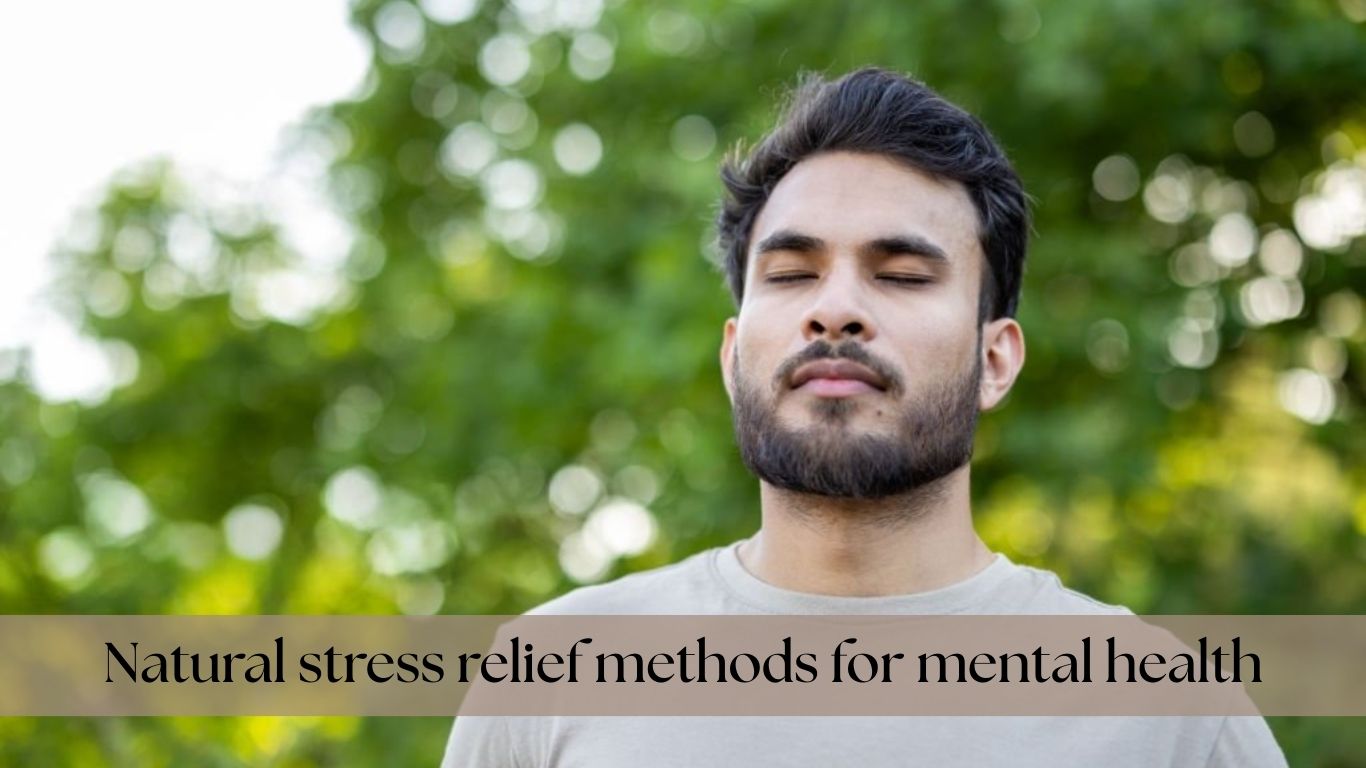Stress is a natural part of life, but when it becomes great, it can take a toll on your mental health. While modern solutions like therapy and medication are valuable, many people are turning to natural stress relief methods to find balance. These approaches are accessible, affordable, and often work with your body instead of against it. Let’s explore 10 easy ways to ease stress and boost mental wellness naturally.
1. Mindfulness Meditation
Mindfulness meditation teaches you to focus on the present moment without judgment. Studies show it reduces cortisol (the stress hormone) and improves emotional resilience.
How to try it:
- Sit comfortably, close your eyes, and breathe deeply.
- Focus on the sensation of your breath moving in and out.
- When your mind wanders, gently bring it back to your breath.
- Start with 5 minutes daily and gradually increase.
Why it works: It interrupts the cycle of anxious thoughts and grounds you in the “here and now.
2. Deep Breathing Exercises
Controlled breathing activates the parasympathetic nervous system, signaling your body to relax.
Try the 4-7-8 technique:
1. Inhale deeply through your nose for 4 seconds.
2. Hold your breath for 7 seconds.
3. Exhale slowly through your mouth for 8 seconds.
Repeat 3–4 times.
3. Move Your Body
Physical activity releases endorphins, your brain’s natural mood boosters. You don’t need a gym membership:
- Walk in nature.
- Dance to your favorite song.
- Try yoga or tai chi (gentle movements + breathwork = stress relief combo!).
4. Spend Time in Nature
Research shows that spending just 20 minutes in green spaces lowers stress levels. Try:
- Walking barefoot on grass (“earthing”).
- Listening to birdsong or rustling leaves.
- Gardening or tending to houseplants.
5. Journaling
Writing down your thoughts helps process emotions and reduces mental clutter.
Prompt idea: “What’s weighing on me today, and what’s one small step I can take to address it?
6. Connect with Loved Ones
Social support is a powerful stress buffer. Even a quick chat with a friend releases oxytocin, a hormone that counteracts stress.
Tip: If you’re feeling isolated, join online communities focused on hobbies or wellness.
7. Sip Herbal Teas
Certain herbs have calming properties:
- Chamomile: Reduces anxiety.
- Lavender: Promotes relaxation.
- Peppermint: Soothes tension headaches.
8. Creative Outlets
Engaging in creativity distracts the mind and fosters joy. Try:
- Coloring or doodling.
- Playing an instrument.
- Cooking a new recipe.
9. Prioritize Sleep
Poor sleep exacerbates stress. Improve sleep hygiene:
- Avoid screens 1 hour before bed.
- Keep your bedroom cool and dark.
- Try a warm bath with Epsom salts.
10. Limit Stimulants
Caffeine and sugar can spike anxiety. Swap coffee for herbal tea or golden milk (turmeric + warm milk) in the afternoons.
Final Tip: Combine Methods!
For example, pair a walk in the park (nature + movement) with deep breathing. Experiment to find what resonates with you.
Natural stress relief isn’t about perfection—it’s about small, consistent steps. By tuning into your body and mind, you’ll build resilience and create a calmer, happier life.
Which method will you try first? Let me know in the comments!
FAQs
1. What are some effective natural methods to reduce stress without medication?
Natural stress relief methods include practices like deep breathing exercises, meditation, physical activity (like walking or yoga), spending time in nature, journaling, and maintaining a regular sleep schedule. These techniques help activate the body’s relaxation response, reduce cortisol levels, and improve overall mental well-being.
2. Can diet and nutrition play a role in managing stress naturally?
Yes, diet plays a significant role in stress management. Foods rich in omega-3 fatty acids (like salmon or walnuts), magnesium (like leafy greens and bananas), and antioxidants (found in berries and green tea) can help reduce stress and anxiety. Avoiding excess caffeine, sugar, and processed foods is also crucial for maintaining stable mood and energy levels.
3. How does physical exercise help in relieving stress naturally?
Exercise helps reduce stress by boosting endorphins—natural mood lifters. It also lowers levels of stress hormones like cortisol. Regular physical activity improves sleep, enhances self-esteem, and provides a healthy outlet for releasing built-up tension, making it a powerful and natural stress-relief tool.

